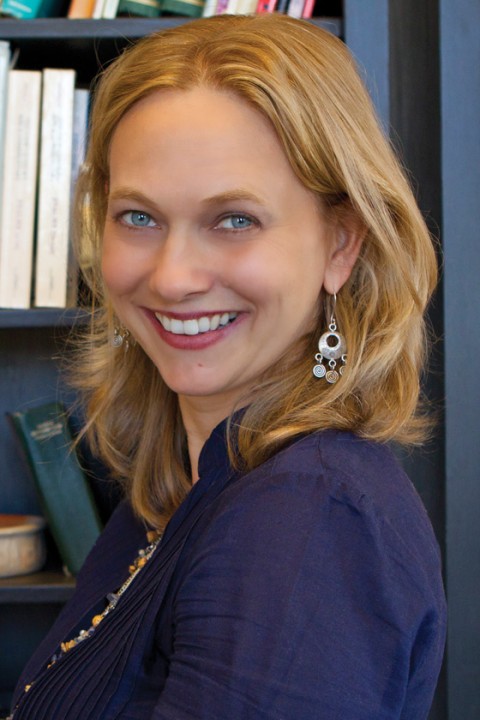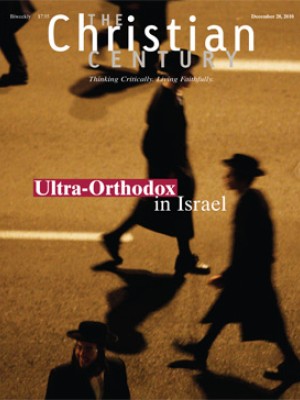Freelance theologian: Anna Madsen sets up shop

In 2009 Anna Madsen left her tenure-track job at Augustana College in Sioux Falls, South Dakota, and started a business as a freelance theologian. Her venture is called OMG: Center for Theological Conversation. She works with individuals and with churches to address theological concerns.
Why did you leave academia and start a business as quirky as this one?
In 2004, my husband and I were studying theology in Regensburg, Germany. Right before my family was to move to Augustana after my Ph.D. work was completed, my husband and almost-three-year-old son, Karl, were hit by a car. My husband died, and Karl suffered a traumatic brain injury. My daughter, Else, was only eight months old at the time. I moved to Sioux Falls. The constellation of a lot of things had changed: family, vocation—and not least of all, theology.
Read our latest issue or browse back issues.
I was worried about finances, but Reynold, whom I married in 2009, said that while he respected my worries, he wondered if I really needed to put a dollar sign before all of my "emotional investments." So I resigned the teaching post.
How did the idea for OMG emerge?
I realized that if someone is theologically out of whack, then that person's whole life is out of whack. I thought that people really needed a space to contemplate their theological underpinnings and get themselves on track. What I envision for the future is a center where I would work with therapists, nutritionists, a financial planner—a whole range of services that would help people clarify their values and commitments.
How does being a freelance theologian work?
I have a number of clients I work with on a regular basis. For example, there's one woman who is so hungry for theological conversation that she has booked every Friday until kingdom come.
I also counsel a group whose congregation has been rent asunder by the issue of homosexuality. We chose to talk about homosexuality, but I decided that we needed to start with hermeneutics. I also work with a group of therapists in order to help them with clients who come to them with theological questions that are outside their realm of expertise.
What kind of feedback have you received from pastors?
I have heard from a few pastors concerned that I might be usurping their pastoral care role. But then one woman said that she understood—she realized that she never goes to one of her parishioners for medical care because she doesn't want to get naked in front of them. Likewise, she could see that to one of her parishioners, asking certain kinds of questions of one's pastor could feel like "getting naked."
I think the benefit of what I offer is that I do not have a particular church's theology in mind. People come to me with the sense that I don't have an agenda.
After I gave a presentation at one church, a man—a lifelong Lutheran—came up to me and said sheepishly, "After hearing you talk, I think I might be a Baptist. I don't mind Baptists, but I don't want to be a Baptist."
I ask the people who come to me for help: What is your theological core? What defines you? I tell them it is the thing in which you place your trust. If you recognize that what you think is your God isn't actually your God, that can be scary.
For example, my children are precariously close to becoming my God. I need to question that.
How has the accident influenced you theologically?
One of things that is so striking to me is how often we allow ourselves to be defined by the threat of death rather than by possibility—by fear instead of hope.
Resurrection has become central to my theology. If I allow death to win, then what hope do I have for my son Karl's healing?
A German word I use a lot is doch, which is hard to translate. If you use it once, you are basically saying, "That is wrong." If you use it twice, you mean that something is really wrong. Three times, and it becomes an insult.
So Karl and I have a little saying. I say to him, "When the doctors said that you would never walk again, what did we say?" He says, "Doch." "When the doctors said that you would never talk again, what did we say?" He says, "Doch, doch."
Death is real, I like to say, but life is real-er. You have to find a theological underpinning for living a doch life.







